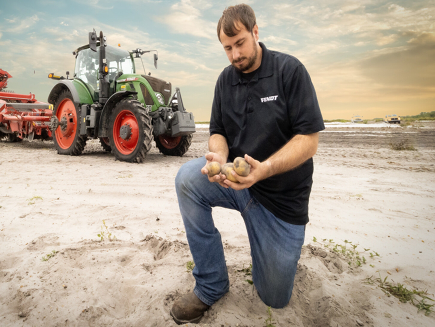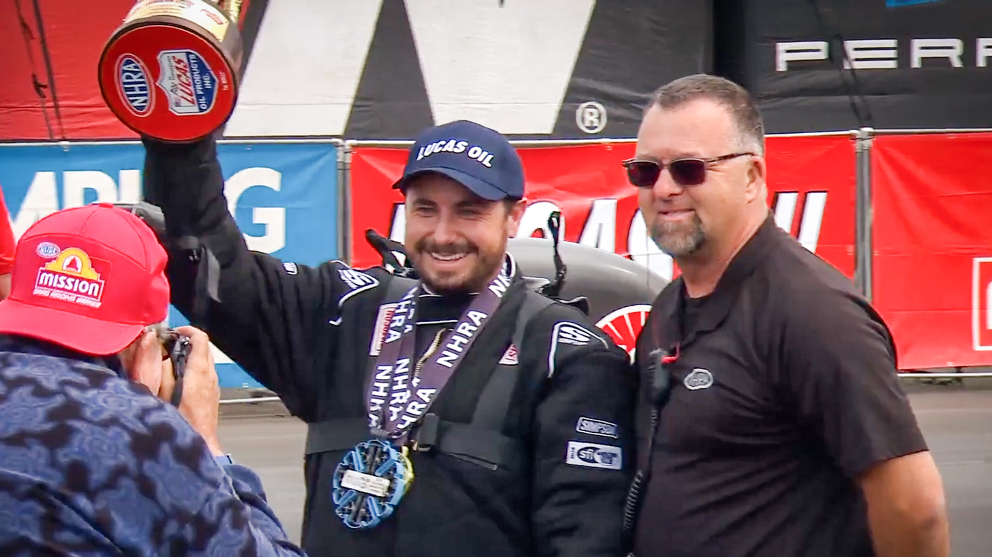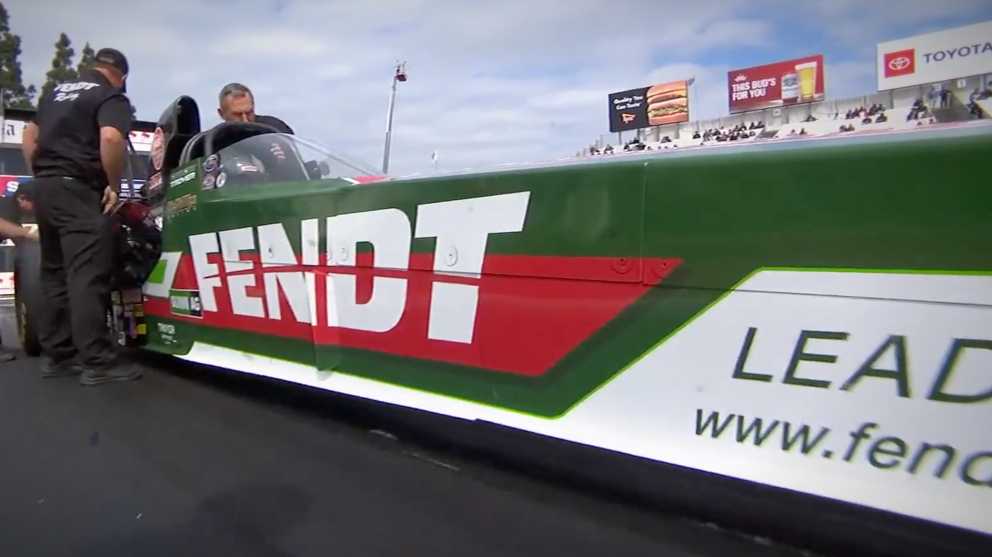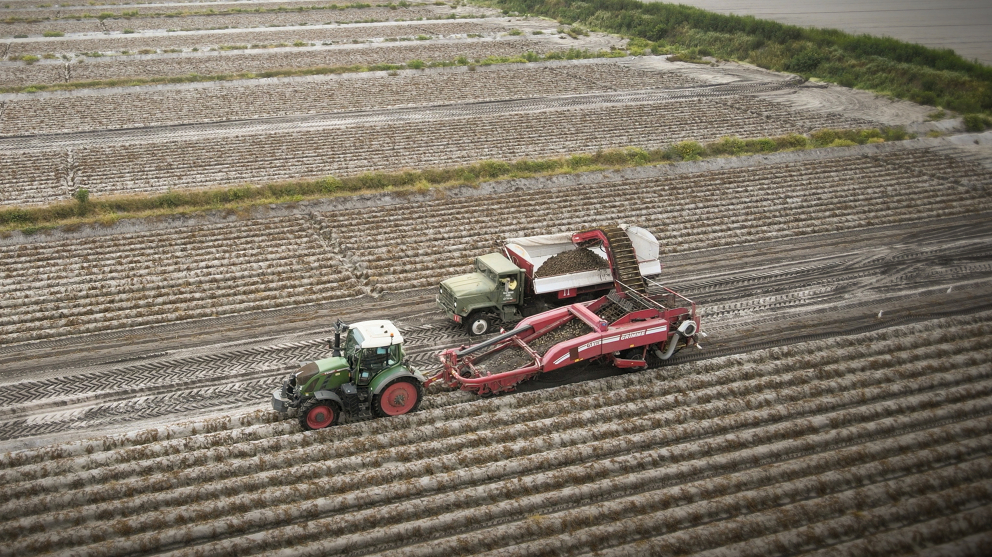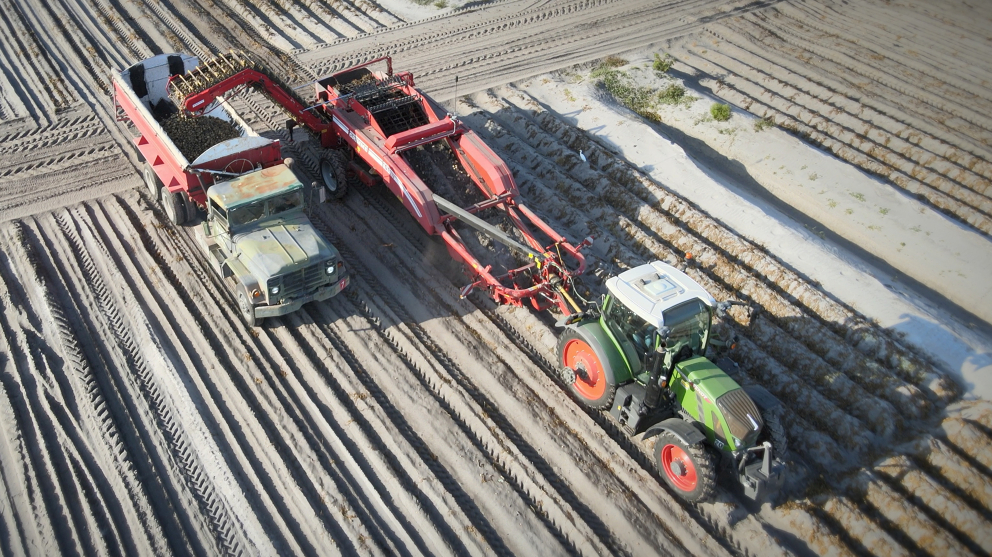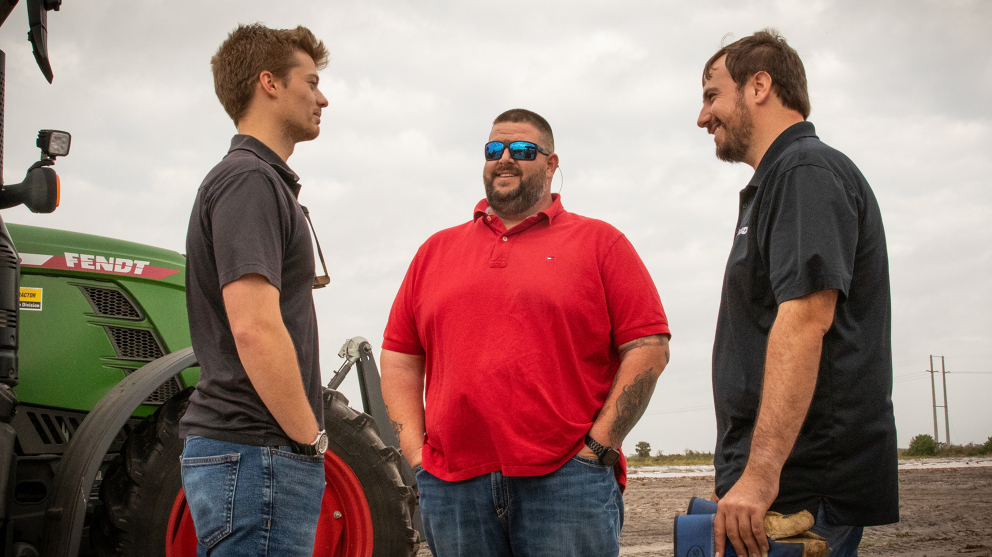
At work on Troyer Brothers farm near Fort Myers, Florida, Anthony Troyer is steering down long rows of buried potatoes, digging them for fresh distribution, in a carefully choreographed dance of tractor, truck, and harvester.
Meanwhile, he's looking forward to the weekend, when he'll be ripping down the asphalt track in a custom-built race car.
It seems like an unusual pairing, but to Troyer, who is known by the nickname "Tater" on the racing circuit, the connection is clear. “Racing and farm equipment are a lot alike,” he says with a grin. “If you don't keep up with the technology, you're going to get left in the dust.”
For Troyer, staying ahead means more than horsepower—it’s about precision, innovation, and the relentless drive to evolve, whether it’s harvesting potatoes or shaving milliseconds off track run time.
The relentless drive to evolve is deeply rooted in the Troyer ethic. The Troyer Brothers farm traces those roots back to the 1940s, when brothers Vernon and Clayton Troyer left Nebraska after the Dust Bowl and settled in Pennsylvania. In 1943, they officially founded Troyer Brothers in northwest Pennsylvania, focusing on potato farming. In the 1970s and 1980s, the next generation—Vernon’s sons Don, Vern, and David—expanded operations to South Florida, leveraging the region's warm climate to grow potatoes during the winter months, thus enabling year-round production.
Today, the third generation, including Anthony and his brother, Aaron, who serves as the company's president—continues to innovate and uphold the family's legacy, producing non-GMO-certified potatoes for labels such as SunKing, Annie’s Best, and Pappy’s Pride, and distributing millions of pounds across the United States and Canada.
The end product is never processed; no potato chips, fries, or flakes. "The final product is the potato itself. All of our potatoes is considered table stock." Anthony describes Troyer Bros. as a "one-stop shop"—they do it all to bring the product to market. "We will harvest, we will clean, grade, and pack, and we'll put it under whatever label you want."
Where most farms will get the crop into cool storage as soon as it's out of the ground, then send to a packer or processor later, the Troyers go from harvest to shipping in a day, and it's all done in-house. That's another reason Florida is ideal for the operation. "Everything we dig is fresh. As long as the market's fine, we will dig per order," says Anthony. "We're the only ones harvesting almost year-round, except maybe California."
Less time in storage means a higher quality potato, as well. "That's something we're known for," says Anthony. "Quality means harvesting fresh, and getting it out fresh."
Part of the consistent quality comes from growing mostly their own seed potatoes, which still happens back in Pennsylvania. But consistency, says Aaron, doesn't mean always doing things the same way. "I think our key to success has been consistency, has been facing all the challenges and then adapting to them as quickly as possible," he says.
A Change For The Better
Recently, that meant making some changes to the farm equipment fleet. "We'd been with (John) Deere since we moved down here... but time moves on. We were ready to try something new."
Anthony says he'd "never been to a farm show" until attending Agritechnica in Germany, where he first encountered Fendt. The Troyers toured the Fendt factory, met some of the Fendt leadership, and started discussing a fleet transition.
Aaron describes a fleet change as a leap of faith, whether you're running a couple of tractors or a couple of dozen. But Anthony describes the move as "smooth," and Aaron insists that a leap of faith can be calculated.
"We've been with another brand for quite some time," says Aaron. "It's good to go out there and get different quotes and see what else is available out there in the marketplace. And Fendt and AGCO came together with a really good proposal."
The transition evolved over a few years, as the Troyers ran other AGCO tractors and then moved on to Fendt as the FendtONE cab became available. "You've got the actual numbers, the finance part of it, but you've also got the things that are intangible, that're hard to grasp," says Anthony. "Like, the satisfaction of the people that are working with you. The guys tell me that they drive like you're riding on an old Cadillac. It's very soft and smooth, and it helps keep you active and aware while you're driving and taking care of the crop that's out there."
But the ROI extended beyond the initial numbers and the comfort and convenience of the cab. "There's a lot of demand when it comes to our PTO," says Anthony. "There's a lot of load when you're pulling something through the sand," like the potato harvesting equipment. The ground engagement is similar to tillage. "With the high-torque, low-rev Fendt, it helps out with fuel with big time."
In a 10- to 12-hour day with a PTO running, "we can average about 2.8 to three gallons per hour on our harvesting equipment," says Anthony. "We can go almost three days before filling up. With John Deere, we were filling up with fuel every day. DEF was every two fills," says Anthony.
Meanwhile, "Gold Star Customer Care means a lot to us," says Anthony. "That plan helps us manage our costs, and we know that the service is being done correctly," says Aaron. "We don't have to think about it."
"We've got 24 tractors running," says Anthony of the Fendt fleet, which includes 12 714s, three 722s, three 724s, one 933, four 1050s, and one 1042. "You're telling me if one of them breaks down, and it's going to be down for more than a day, you're going to loan us a tractor to replace it? So that pretty much sealed the deal," he says of the replacement promise under Gold Star.
"And our local dealer is amazing," Anthony says of Kelly Tractor. "They have a tech ready to go whenever you call."
Digging potatoes for a fresh market means timing is crucial, and downtime is unacceptable. "We've got a lot of tractors, every tractor has a specific job, and there usually isn't a tractor just sitting around on our farms that's not running," says Anthony. The Fendt tractors' versatility is ideal for the job, as well. "With traditional crops like corn, soybeans, and wheat, the crop cart will come up next to the combine. The auger will come out, and then you're unloading," says Anthony. "With potatoes, the truck is next to you at all times. So you always have the boom out, the boom's always running, there's no hopper, so you're always moving with a truck. So it's like a song and dance," he says. "It's a synchronized system, and the Fendts... the CVT is very accurate, and you're able to get everything synchronized very easily."
The Need For Speed
Anthony's proclivities for power and precision run deep. When talk turns to how a farm kid gets into racing, he just sees another kind of horsepower: the kind that roars down the track rather than keeping it between the rows. And, he remembers how fascinated he was with racing as a kid.
"The regional airport near here, one of the runways is an eighth-mile racetrack," he says. I would go after work on Fridays and just watch," Anthony says. "My uncle had race cars, we had the opportunity to get a supercharged Camaro... We raced in Factory Stock Showdown, heads up racing... Whoever gets to the finish line first wins. So that's how we started.
"But I wanted to go faster."
Mission accomplished; fast forward, literally, to now. "I'm currently racing in NHRA. I'm racing a top alcohol dragster," says Anthony. "It's amazing stuff. It's very fast. 270 plus miles an hour and a quarter mile at 5.2 seconds."
In 2025, Troyer joined McPhillips Racing to pilot their top alcohol dragster and made his event debut in March. At the 65th NHRA Winternationals in Pomona, California, he clinched his first victory. Despite qualifying 11th, Troyer advanced through the rounds with impressive reaction times, culminating in a 5.193-second pass at 276.86 mph in the finals.
And he's doing it in a Fendt-sponsored car.
"They just happened to be sponsoring the track with the tractors for the track prep," says Anthony of the Fendt 324s that keep the track clean and safe between races. "They knew who I was, and they put two and two together, and they said, 'Let's go racing,'" says Anthony with a smile.
"The Fendt partnership means a lot to us," says Anthony, and he makes the most of it whether he's on the track or in the field. In the winner's circle at Pomona, he made sure the crowd knew the family had 24 Fendts at home, and the fleet was harvesting even as he was raising the trophy.
"With NHRA and drag racing, you're looking at O2s, you're looking at different temperatures, you're looking at shock positions," he says. "And farming is the same way. You're always looking at different scenarios in farming, whether it's weather, whether it's seed placement, fuel.... That's a whole season, whether it's racing or farming."
And as Aaron noted, to stay on top of both, you can't just do what you've always done. "Just don't do something because that's the way you've always done it," he says. "That's kind of a recipe for fading away. So you want to always be active and find what's new and what's coming."
Story by Jamie Cole

